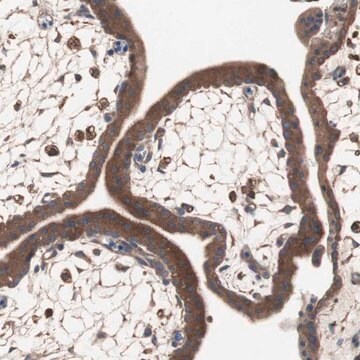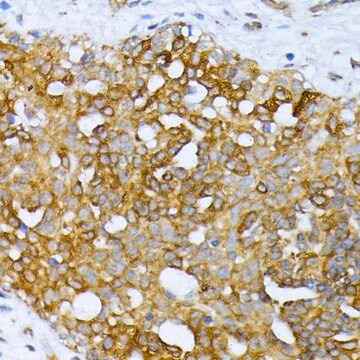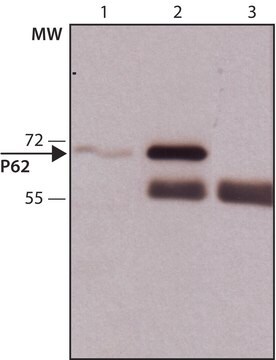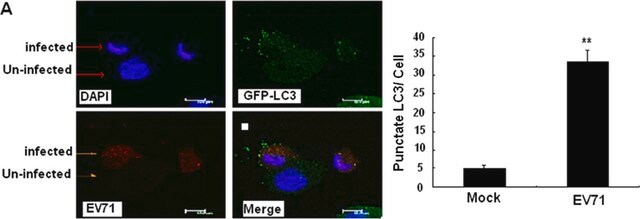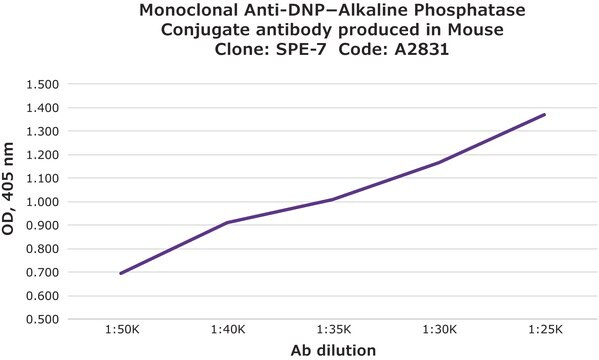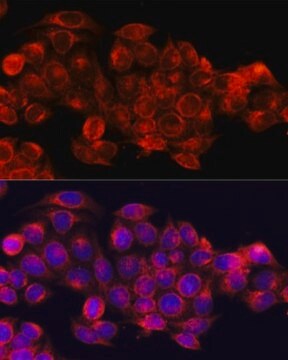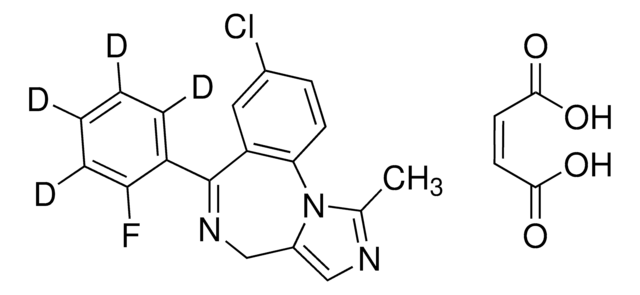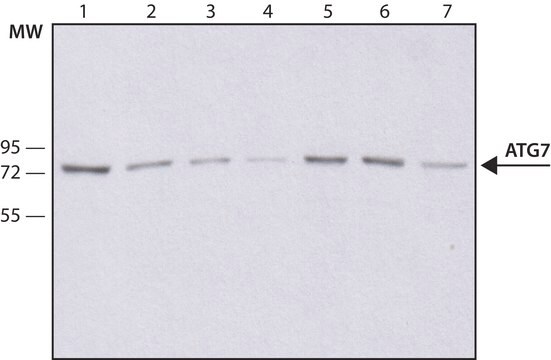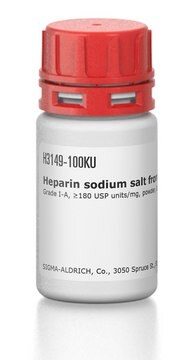A2856
Anti-ATG7 antibody produced in rabbit
affinity isolated antibody, buffered aqueous solution
Synonyme(s) :
Anti-APG7, Anti-APG7-like, Anti-APG7L, Anti-Apoptosis-specific-protein, Anti-Autophagy protein 7-like, Anti-Ubiquitin activating enzyme E1-like protein
About This Item
Produits recommandés
Source biologique
rabbit
Niveau de qualité
Conjugué
unconjugated
Forme d'anticorps
affinity isolated antibody
Type de produit anticorps
primary antibodies
Clone
polyclonal
Forme
buffered aqueous solution
Poids mol.
antigen ~75 kDa
Espèces réactives
rat, human, mouse
Conditionnement
antibody small pack of 25 μL
Technique(s)
immunoprecipitation (IP): 1-2 μL using human U87 cell lysate
western blot: 0.5-1 μg/mL using whole extracts of mouse 3T3 cells
Numéro d'accès UniProt
Conditions d'expédition
dry ice
Température de stockage
−20°C
Modification post-traductionnelle de la cible
unmodified
Informations sur le gène
human ... ATG7(10533)
mouse ... Atg7(74244)
rat ... Atg7(312647)
Catégories apparentées
Description générale
Immunogène
Application
- for quantitative real-time polymerase chain reaction of autophagy-related genes
- in immunofluorescence and immunoblotting
- in in vivo acetylation/deacetylation of autophagy proteins
Actions biochimiques/physiologiques
Forme physique
Clause de non-responsabilité
Vous ne trouvez pas le bon produit ?
Essayez notre Outil de sélection de produits.
Code de la classe de stockage
12 - Non Combustible Liquids
Classe de danger pour l'eau (WGK)
WGK 1
Point d'éclair (°F)
Not applicable
Point d'éclair (°C)
Not applicable
Équipement de protection individuelle
Eyeshields, Gloves, multi-purpose combination respirator cartridge (US)
Certificats d'analyse (COA)
Recherchez un Certificats d'analyse (COA) en saisissant le numéro de lot du produit. Les numéros de lot figurent sur l'étiquette du produit après les mots "Lot" ou "Batch".
Déjà en possession de ce produit ?
Retrouvez la documentation relative aux produits que vous avez récemment achetés dans la Bibliothèque de documents.
Les clients ont également consulté
Notre équipe de scientifiques dispose d'une expérience dans tous les secteurs de la recherche, notamment en sciences de la vie, science des matériaux, synthèse chimique, chromatographie, analyse et dans de nombreux autres domaines..
Contacter notre Service technique